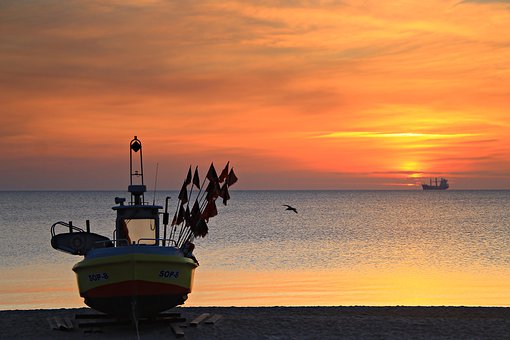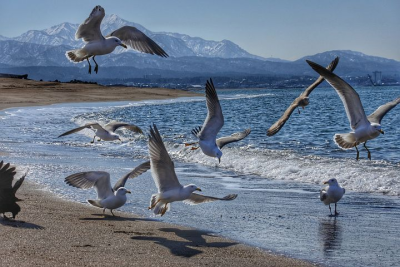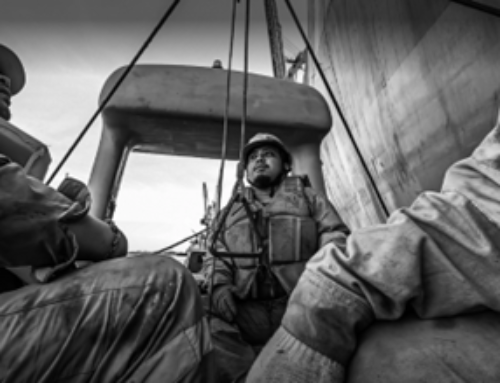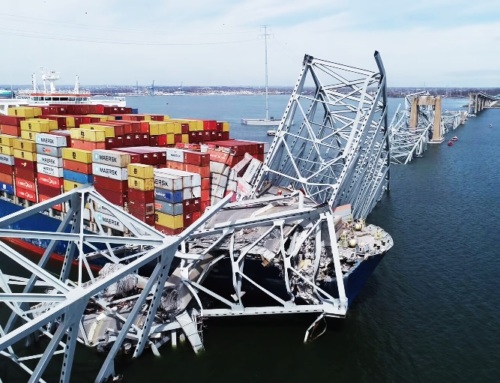U.N. Completes First-Ever High Seas Treaty

For the first time in world history, with U.S. support and approval, the United Nations has completed a high-seas treaty regulating the use of the world’s ocean, covering all areas beyond the 200-nautical-mile boundary defining each nation’s territorial waters.
The agreement is being hailed by world leaders, scientists, and environmental groups as it sets in place the first global framework for managing and preserving marine resources. The UN’s Secretary-General issued a statement also commending the delegates’ efforts towards conservation and sustainable use of the sea, calling it a “breakthrough” affecting two-thirds of the oceans.
In the past, the world’s “high seas” have been largely unprotected, with few standards enforced regulating fishing, shipping, and research. In recent years, scientists have expressed concern about the impact of these activities on global warming, noting that the oceans absorb the effects of up to 90% of excess warming, as well as concern for marine species at risk of imminent extinction.
“Two-thirds of the ocean has just been exposed to the will and want of all… We have never been able to protect and manage marine life in the ocean beyond countries’ jurisdictions,” said Rebecca Hubbard, the director of the High Seas Alliance consortium of nongovernmental organizations during an interview with The Washington Post on Sunday. “This is absolutely world-changing.”
Building on UN Biodiversity initiatives launched last December, the new treaty provides for strict limits on fishing activity, as well as addressing mineralization and shipping lanes, and a framework for international coordination on issues such as environmental impact assessments and sharing resources. The treaty also places 30 percent of the world’s oceans into protected areas with controlled access.
 A coalition, including the United States, the United Kingdom, the European Union, and China, helped to bring the final agreement together, with nearly 200 nations total approving the final text. However, to go into force, the approving nations must also adopt the treaty, which is expected to take years.
A coalition, including the United States, the United Kingdom, the European Union, and China, helped to bring the final agreement together, with nearly 200 nations total approving the final text. However, to go into force, the approving nations must also adopt the treaty, which is expected to take years.
The International Maritime Organization (IMO) highlighted its presence during the negotiations, potentially seeking to calm some of the fears surrounding how “ships plying their trade across the world’s oceans are subject to stringent environmental, safety and security rules, which apply throughout their voyage.” The IMO pointed to the beneficial effects of over 50 current and globally-binding treaties, such as International Convention for the Prevention of Pollution from Ships (MARPOL), the Ballast Water Management (BWM) Convention, and the Polar Code for the Arctic and Antarctic.
It may be many years before the full impact of the treaty on the shipping community is realized. While the treaty provides the tools to create and manage marine protected areas, it falls to the treaty’s newly-created commission to define standards further, such as the extent to which ships are excluded from certain protected areas. Environmentalists are seeking to use the treaty’s framework to pursue other concerns, such as water pollution, better ballast water management, and deep-sea mining.
Overall, however, conservation groups have hailed the agreement as a major step in protecting ocean biodiversity and fighting climate change, however, and express commitment to ensuring the treaty is adopted and enforced. Said Jessica Battle of World Wildlife Fund (WWF) in a statement, “What happens on the high seas will no longer be ‘out of sight, out of mind… We can now look at the cumulative impacts on our ocean in a way that reflects the interconnected blue economy and the ecosystems that support it.”
Read the final text of the High-Seas Treaty here.
Image Credit: Pixabay
Here at The Herd Law Firm, we commend the passing of the U.N. High Seas Treaty, and encourage the preservation of our oceans for the benefit of mariners, and humans, everywhere.







